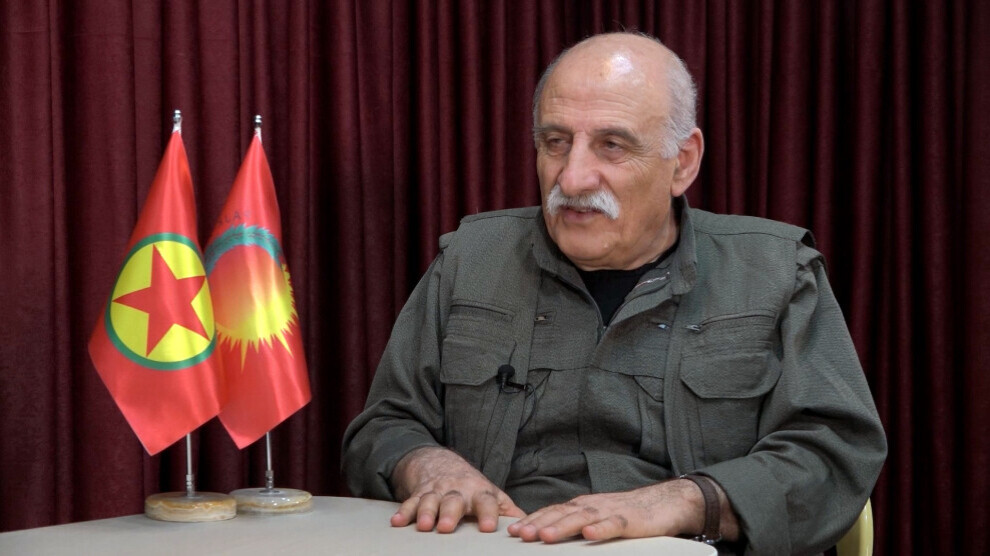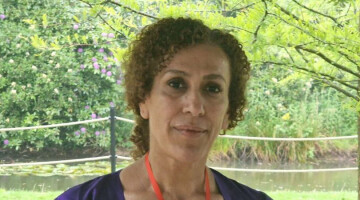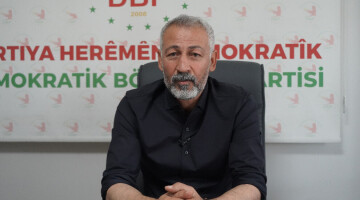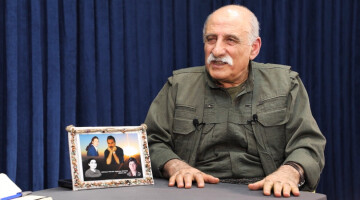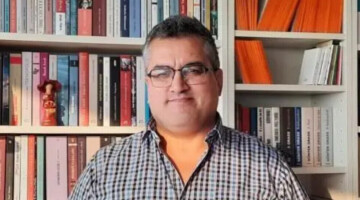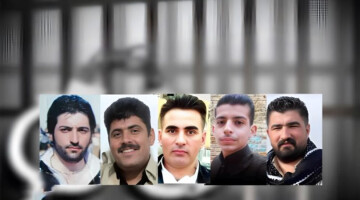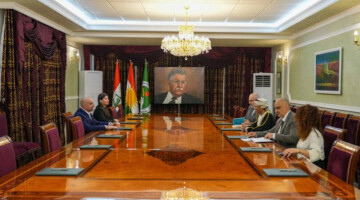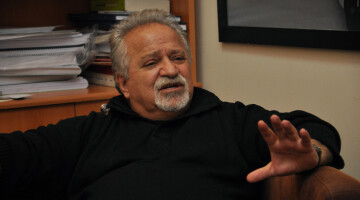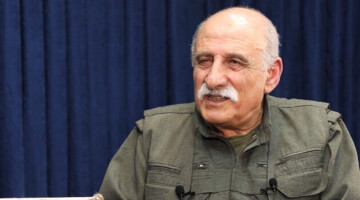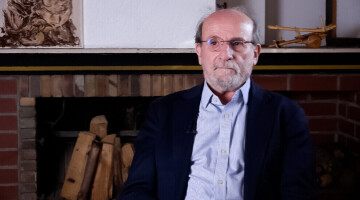In the fourth part of this in-depth interview, Duran Kalkan, member of the KCK Executive Council, spoke about how the approach of the PKK changed through the years.
The first part of the interview can be read here, the second part here, and the third part here.
How has the PKK’s approach changed in relation to the war that was originally started with the establishment of the HRK, continued by the ARGK and is now being waged by the modern and professional guerrillas? How do you assess the level that the guerrilla struggle has reached? Also, the action against the TAI in Ankara is currently being discussed in both a political and military context. What can you tell us about this? In this context, how has the understanding of fedai developed in the PKK?
The guerrilla, defense, self-defense, resistance, and war are concepts that are being discussed broadly and should be discussed even more. As the attacks of the AKP-MHP fascism increase, as the fascist, repressive mentality and politics in Europe, America, and other parts of the world develop and strive towards power, this becomes everyone’s concern. That European discourse of democratic systems and possibilities disappears. Everyone’s situation is getting more similar to each other. Therefore, revolutionaries and socialists are discussing these concepts again.
In the past, they have moved away from this. When the Soviet Union dissolved, there was despair and pessimism. There were more ruptures, but now, as they are influenced by the apoist thought, which is renewing itself and emerging as a new leadership with a paradigm shift, and as fascist oppression, terror, persecution, and threats increase, these concepts are coming to the agenda again for socialists. They become issues that need to be discussed, understood correctly, and applied by finding practical solutions. From the beginning, the PKK envisioned this for Kurdistan and took it as a basis.
People ask what the PKK’s differences from other organizations are. Like we stated before, there was one main difference: other organizations could not break away from the system. The PKK was able to do this by focusing on the mentioned concepts. How can one exist, protect one’s existence, achieve freedom, and protect even what one has won without being able to break away from a system that practices so much oppression, persecution, violence, massacre, and genocide without being able to resist its armed attacks? This is not possible. This is why the PKK was right from the beginning. It did not make a mistake in this regard. Other organizations, those who claimed to be the Kurdish leadership, said one thing, and Rêber Apo [Abdullah Öcalan] said another.
A fundamental aspect that distinguished Rêber Apo from them was that he was not mistaken on this issue. His correct understanding of the Kurdish reality, the reality of Kurdistan, and more importantly, his courage and sacrifice to fight against this reality. Many others could see it, but they did not have that courage, that will, and that strength. He recognized the enemy, analyzed the theory of force, analyzed war, and analyzed the warlike structure of the power and state system. He analyzed the wars of self-defense waged against it, and on this basis, he saw the guerrilla as the most fundamental method, as the basic method that enables the weak to fight and win against the strong, as a mentality, as a style, and he trained, equipped, and organized the guerrilla, starting by organizing himself accordingly. With no other option left to struggle against the fascist military regime of September 12, the guerrilla offensive was launched on October 15, 1984.
Based on the basic conception and understanding of the guerrilla and the prevailing theory of war, many conclusions could be drawn. The guerrillas in Kurdistan were not detached from previous experiences with guerrilla warfare, but they did not implement it one-to-one. Concepts were adapted according to the specific situation in Kurdistan. This was possible through Rêber Apo’s creative approach. He took the practical experience as the basis. He has looked at the practical experiences with guerrilla warfare, how the guerrilla must develop, and how it can be successful. The experiences made in other countries were not repeated one-to-one in Kurdistan, though. He looked at the conditions under which a guerrilla could be successful in Kurdistan and developed a guerrilla theory accordingly, transforming the guerrilla into a partisan movement. No ordinary army was created. Yes, there was talk of a people’s army, but the guerrilla had succeeded in developing a new methodology that was not joined by the ignorant but only by those who educated themselves and became militants of the party and developed a corresponding understanding. This is how the guerrilla developed in Kurdistan.
It gradually moved away from old experiences with others, more and more with its confidence in its own power, its organization, its level of consciousness, and its courageous and fedai struggle. The PKK created a guerrilla that was fully based on socialist, communal, and collective principles and was able to implement the life of the party among its ranks at the highest rank, living a socialist life. That was something others were lacking. They were after power and a statist mentality and followed an ordinary understanding of commanders and soldiers. At the beginning, the PKK actually wanted to follow that too, but it was recognized that this could not be successful under the circumstances in Kurdistan. The power of the enemy, the way actions could be carried out, but also the connection to the people were all very different from elsewhere.
The guerrilla was the party’s form of organization and action in practice. It was always a force of education, organization, and action. The Kurdish guerrilla was never a narrow military force. Neither theoretically did Rêber Apo define it as such, nor in practice did the HRK, ARGK, or later the HPG become a guerrilla movement organized along such a narrow military line. No, it was always an ideological, political, and active force. The guerrilla became a vanguard force that educates, organizes, mobilizes, leads, and commands the people. Party leadership was embodied in the guerrillas, both in action and in daily life. This has gradually deepened with the paradigm shift and has become even more concrete. Since the time when the guerrillas were still fighting for the establishment of a Kurdish nation state, it has undergone a major transformation. When it broke away from the nation state mentality and became a democratic and social movement based on women’s liberation and ecology, it became a self-defense force of society. It had already defined itself as a social self-defense force before; the PKK was shaped as such a self-defense force, and the guerrillas emerged as the most active striking vanguard force, constituting 80 to 90 percent. But then it broke away from the aim of gaining power and establishing its own state. Its targets have changed, its way of striking has changed, and so has its internal organization. A new guerrilla emerged, and a new guerrilla leadership that realized the line of democratic modernity was formed. But it is not possible to defend society just with guerrillas. The guerrilla is professional revolutionism, vanguardism. For whom will it be a pioneer? For society, first and foremost for women, young people, workers, and laborers, so that they can defend themselves.
Kurds used to be a peasant society. And so the guerrillas developed in the countryside within the village society. The guerrillas developed in the mountains, which were inhabited mainly by peasants. With the paradigm shift, Rêber Apo envisioned a struggle that unites the struggle in the mountains, the cities, and the plain. Later, society was separated from the mountains, villages were burned down and destroyed, and people were concentrated in the cities. The self-defense force is where society is. It will be in society; it will be based on society. Now there is a guerrilla vanguard developing on this basis, and there is a struggle for self-defense based on this. Guerrilla leadership is more professional than ever before and symbolizes party militancy. It is based on its own strength and is most competent in applying its own strength.
The peak of this was the action against the TAI in Ankara. Those who carried out the action were militants of the ‘Battalion of the Immortals’. The most professional and trained force ideologically, organizationally, and militarily. It is a force that knows no obstacles and successfully overcomes all kinds of hindrances. No power can hold it back. The fascist AKP-MHP and its state could not prevent Asya Ali and Rojger Helin regardless of all the force it receives from NATO, Russia, and everywhere else. This is the peak of guerrilla leadership. This is the professional guerrilla. It has organized and shaped itself in many such structures, and now, as you say, these are being discussed both politically and militarily.
How can it be evaluated militarily? It shook both the Turkish state and, in fact, everyone else as well. The state has done a lot of propaganda, saying that it is in control of everything and that no guerrilla activity can take place anymore. It said, “We have ended terrorism.” Well, it turned out that it was empty propaganda. Neither could they prevent the guerrillas from taking action, nor were they capable of preventing them.
The action against the TAI proved once again that there is no force that can stop a militant who is trained and organized in the ideology of Rêber Apo, who gains a courageous and fedai character, and who participates in this life correctly with consciousness and conviction. There is no enemy that such a force cannot strike and defeat. There is no victory it cannot achieve. It set an example for the guerrillas. They realized what Rêber Apo meant when he said that the human is the most advanced technique, superior to all technic. This is the war of the vanguard professional guerrillas. Liberation and freedom cannot be achieved without it. Politics may change, new political structures may develop, but society always needs defense.
“There can be no rose without thorns,” said Rêber Apo. He came up with the theory of the rose. If you want to be a rose, you will have to have thorns. In order to remain beautiful as a rose, you will have to have thorns that will prick the hand that reaches out to you. If you want to live freely, you will always have to have the power of self-defense to resist attacks on your free life. You will have to have a defensive mechanism, have to be conscious and organized, and you will have to be capable of taking action. If one leaves the protection of oneself to an outside force, then there is no real protection, no freedom. One has to form one’s own self-defense. Self-defense of society needs to be developed, especially by women and youth. We are still at the beginning in this regard. There are many shortcomings. In fact, as I pointed out, the guerrilla was aiming to create a regular army along the lines of the nation-state; it was going to be its pioneer, but now the guerrilla aims to create social self-defense along the paradigm of ecological and democratic society, based on women’s liberation. It aims to turn the people into their own self-defense army. It aims to create a people defending themselves and fighting for their own defense. The defense line of democratic modernity is based on this.
Right now there is not much I want to add to the political discussions surrounding the attack aimed at the TAI. Many circles are discussing the circumstances in their own way according to their own interests, but one can say that as long as there is the so-called Kurdish problem, that is, the mentality, politics, and attack with which the Turkish state targets the Kurdish people, aiming for their annihilation, there will be such resistances. Everyone should be aware of this. No one can prevent this resistance. Maybe it will happen again today, maybe tomorrow, maybe at some other time, but it will definitely happen again. In order to exist, in order for Kurds to live free, they have to do this. They have acquired such consciousness. There is no point in pulling left and right. They eventually showed everyone the right path. They revealed the existing danger. If you want to get rid of the danger, then be serious, approach the Kurdish question correctly, and work on a solution. It was revealed once again that there is no other solution for the Kurds, for society in Turkey, or for the Turkish state other than the solution power of Rêber Apo. And it also became clear once more that what the state currently calls a solution is a disaster. There was a time when they thought they could do whatever they wanted with the Kurds. That is long gone. Those who thought so have burned their fingers. To summarize, politically, we can only say that we invite and call everyone to common sense.

